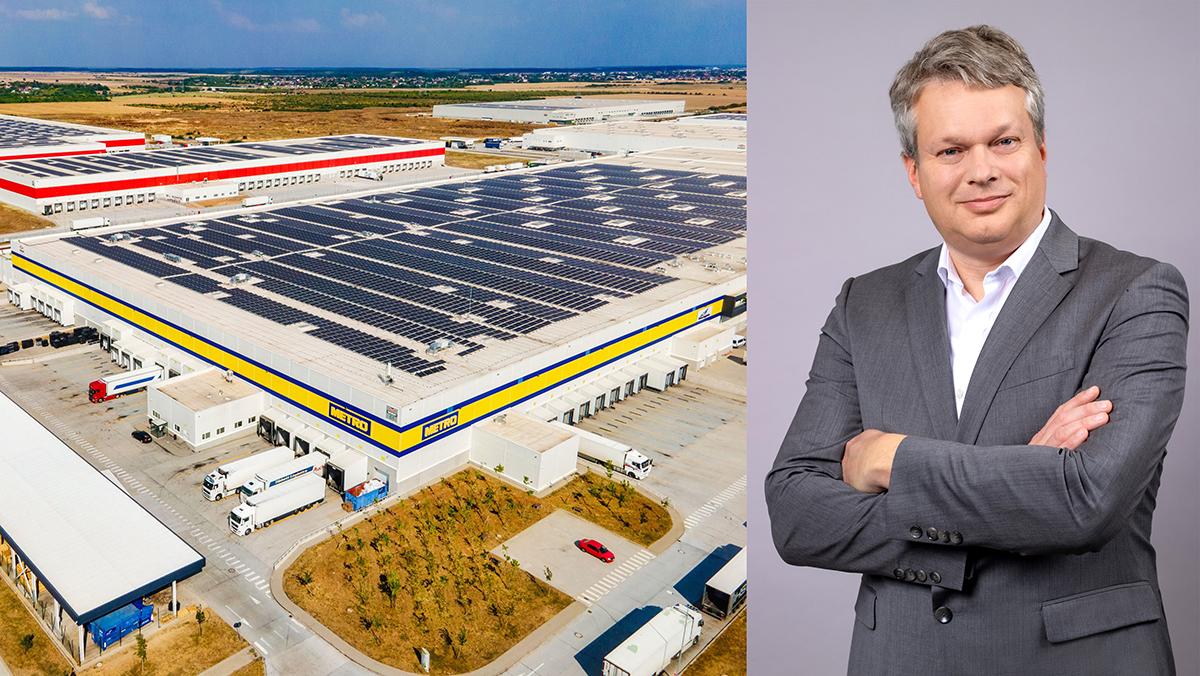WDP Eyes Sustainable Growth in Romania’s Expanding Warehousing and Logistics Market
In an interview with CIJ EUROPE, Gijs Klomp, Business Development Manager for Romania at WDP, shared insights into the company’s operations and future strategies in Romania, where WDP has established a significant presence since 2007. With a portfolio nearing 2 million sqm, Romania remains the company’s sole market in Central Europe, and according to Klomp, it presents ample room for further expansion.
“We know the country well, and our footprint here is large,” Klomp noted. “At the moment, Romania is big enough for us to continue growing.” He highlighted that WDP’s warehousing portfolio in Romania has a significant focus on production-oriented projects, with build-to-suit facilities being a key specialty, especially for the light industry and food retail sectors. The company has developed numerous complex solutions for food retailers, including temperature-controlled units.
While discussing Romania’s growing demand for warehousing, Klomp observed that although demand is rising, it’s not increasing at the same rate as in previous years. “The retail market is growing, volumes are up, and the industrial side is stable with slight growth,” he said. Klomp pointed out that vacancy rates are low, but the challenge lies in translating increased demand into higher rents to offset rising construction costs.
Klomp also addressed trends in the Romanian logistics market, noting that more companies are viewing Romania as a regional hub for Central and South-Eastern Europe. This shift is driven by Romania’s strategic location, market size, and improving infrastructure. “Several clients are servicing multiple jurisdictions from Romania,” Klomp explained. He also highlighted the impact of Bucharest’s new outer ring road, which is making previously hard-to-reach areas more accessible, opening up new opportunities for businesses to tap into cheaper labor pools.
Labor availability, according to Klomp, has become a top priority for WDP’s clients when choosing a location. He mentioned that the growing concern over labor shortages is pushing some companies to consider automation, with technologies like robot picking already being implemented in some warehouses.
Infrastructure remains a challenge in Romania, Klomp admitted. “Generally speaking, the infrastructure is still poor, although improvements are underway. But these changes take time and add uncertainty.” He also pointed to Romania’s non-Schengen status (for land borders) as a hurdle, particularly in terms of border efficiency and the unpredictability of waiting times. Klomp described anticipated full Schengen membership as a “big milestone” for Romania.
On Romania’s broader role in the European logistics network, Klomp described the country as a “new Poland,” with a growing regional importance and improving international reputation. Romania’s advantages, including its large market, major seaport, energy independence, and expanding highway network, make it increasingly attractive for businesses.
Klomp also praised Romania’s permitting process, which he found to be less time demanding than in other countries like the Netherlands or Czech Republic. However, he noted that fire safety regulations are more stringent due to past incidents, particularly in multi-tenant buildings.
Sustainability and technology are key focuses for WDP, with Klomp explaining that the company has an ESG policy and aims to be future-proof. Although Romania lags behind Western markets in sustainability, WDP is committed to implementing biodiversity initiatives and constructing environmentally friendly facilities.
Looking ahead, Klomp mentioned several upcoming projects, including a new facility for a major food retailer in Bucharest and a build-to-suit distribution center for a veterinary pharmaceuticals company in Baia Mare. WDP is also exploring the potential for multimodal terminals, with plans to develop land in Constanța, leveraging its railway connection and proximity to the seaport.
“Our strategy is sustainable growth,” Klomp emphasized, adding that WDP remains focused on build-to-suits and acquiring income-producing assets in prime locations. The company’s flexible approach allows them to adapt to market conditions while continuing to expand their presence in Romania’s evolving logistics landscape.
Source: ©CIJ EUROPE








